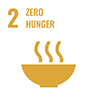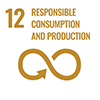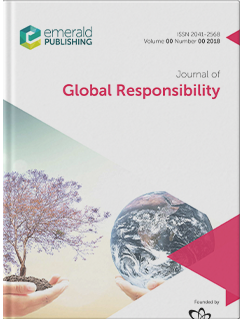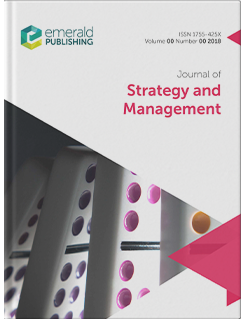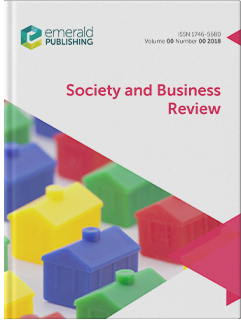Before you start
Author responsibilities
Our goal is to provide you with a professional and courteous experience at each stage of the review and publication process. There are also some responsibilities that sit with you as the author. Our expectation is that you will:
- Respond swiftly to any queries during the publication process.
- Be accountable for all aspects of your work. This includes investigating and resolving any questions about accuracy or research integrity
- Treat communications between you and the journal editor as confidential until an editorial decision has been made.
- Read about our research ethics for authorship. These state that you must:
- Include anyone who has made a substantial and meaningful contribution to the submission (anyone else involved in the paper should be listed in the acknowledgements).
- Exclude anyone who hasn’t contributed to the paper, or who has chosen not to be associated with the research.
- In accordance with COPE’s position statement on AI tools, Large Language Models cannot be credited with authorship as they are incapable of conceptualising a research design without human direction and cannot be accountable for the integrity, originality, and validity of the published work.
- If your article involves human participants, you must ensure you have considered whether or not you require ethical approval for your research, and include this information as part of your submission. Find out more about informed consent.
Research and publishing ethics
Our editors and employees work hard to ensure the content we publish is ethically sound. To help us achieve that goal, we closely follow the advice laid out in the guidelines and flowcharts on the COPE (Committee on Publication Ethics) website.
We have also developed our research and publishing ethics guidelines. If you haven’t already read these, we urge you to do so – they will help you avoid the most common publishing ethics issues.
A few key points:
- Any manuscript you submit to this journal should be original. That means it should not have been published before in its current, or similar, form. Exceptions to this rule are outlined in our pre-print and conference paper policies. If any substantial element of your paper has been previously published, you need to declare this to the journal editor upon submission. Please note, the journal editor may use Crossref Similarity Check to check on the originality of submissions received. This service compares submissions against a database of 49 million works from 800 scholarly publishers.
- Any manuscript you submit to this journal should be original. That means it should not have been published before in its current, or similar, form except for a firm’s internal publications. Other exceptions to this rule are outlined in our pre-print and conference paper policies. It is recognized that an article for the journal may be an adaptation and update of an earlier paper that has been published only internally, such as a law firm client memorandum that is copyrighted by the firm in its original form. If any substantial element of your paper has been previously published, you need to declare this to the journal editor upon submission. Please note, the journal editor may use Crossref Similarity Check to check on the originality of submissions received.
- Your work should not have been submitted elsewhere and should not be under consideration by any other publication.
- If you have a conflict of interest, you must declare it upon submission; this allows the editor to decide how they would like to proceed. Read about conflict of interest in our research and publishing ethics guidelines.
- By submitting your work to Emerald, you are guaranteeing that the work is not in infringement of any existing copyright.
Third party copyright permissions
Prior to article submission, you need to ensure you’ve applied for, and received, written permission to use any material in your manuscript that has been created by a third party. Please note, we are unable to publish any article that still has permissions pending. The rights we require are:
- Non-exclusive rights to reproduce the material in the article or book chapter.
- Print and electronic rights.
- Worldwide English-language rights.
- To use the material for the life of the work. That means there should be no time restrictions on its re-use e.g. a one-year licence.
We are a member of the International Association of Scientific, Technical, and Medical Publishers (STM) and participate in the STM permissions guidelines, a reciprocal free exchange of material with other STM publishers. In some cases, this may mean that you don’t need permission to re-use content. If so, please highlight this at the submission stage.
Please take a few moments to read our guide to publishing permissions to ensure you have met all the requirements, so that we can process your submission without delay.
Open access submissions and information
All our journals currently offer two open access (OA) publishing paths; gold open access and green open access.
If you would like to, or are required to, make the branded publisher PDF (also known as the version of record) freely available immediately upon publication, you can select the gold open access route once your paper is accepted.
If you’ve chosen to publish gold open access, this is the point you will be asked to pay the APC (article processing charge). This varies per journal and can be found on our APC price list or on the editorial system at the point of submission. Your article will be published with a Creative Commons CC BY 4.0 user licence, which outlines how readers can reuse your work.
Alternatively, if you would like to, or are required to, publish open access but your funding doesn’t cover the cost of the APC, you can choose the green open access, or self-archiving, route. As soon as your article is published, you can make the author accepted manuscript (the version accepted for publication) openly available, free from payment and embargo periods.
You can find out more about our open access routes, our APCs and waivers and read our FAQs on our open research page.
Find out about open
Transparency and Openness Promotion (TOP) guidelines
We are a signatory of the Transparency and Openness Promotion (TOP) Guidelines, a framework that supports the reproducibility of research through the adoption of transparent research practices. That means we encourage you to:
- Cite and fully reference all data, program code, and other methods in your article.
- Include persistent identifiers, such as a Digital Object Identifier (DOI), in references for datasets and program codes. Persistent identifiers ensure future access to unique published digital objects, such as a piece of text or datasets. Persistent identifiers are assigned to datasets by digital archives, such as institutional repositories and partners in the Data Preservation Alliance for the Social Sciences (Data-PASS).
- Follow appropriate international and national procedures with respect to data protection, rights to privacy and other ethical considerations, whenever you cite data. For further guidance please refer to our research and publishing ethics guidelines. For an example on how to cite datasets, please refer to the references section below.
Prepare your submission
Manuscript support services
We are pleased to partner with Editage, a platform that connects you with relevant experts in language support, translation, editing, visuals, consulting, and more. After you’ve agreed a fee, they will work with you to enhance your manuscript and get it submission-ready.
This is an optional service for authors who feel they need a little extra support. It does not guarantee your work will be accepted for review or publication.
Visit Editage
Manuscript requirements
Before you submit your manuscript, it’s important you read and follow the guidelines below. You will also find some useful tips in our structure your journal submission how-to guide.
|
Format
|
Article files should be provided in Microsoft Word format
While you are welcome to submit a PDF of the document alongside the Word file, PDFs alone are not acceptable. LaTeX files can also be used but only if an accompanying PDF document is provided. Acceptable figure file types are listed further below.
|
|
Article length / wordcount
|
Articles should be between 6,000 and 7,000 words in length. This includes all text, for example, the structured abstract, references, all text in tables, and figures and appendices.
Please allow 280 words for each figure or table.
|
|
Article title
|
A concisely worded title should be provided.
|
|
Author details
|
The names of all contributing authors should be added to the ScholarOne submission; please list them in the order in which you’d like them to be published. Each contributing author will need their own ScholarOne author account, from which we will extract the following details:
- Author email address.
- Author name. We will reproduce it exactly, so any middle names and/or initials they want featured must be included.
- Author affiliation. This should be where they were based when the research for the paper was conducted.
In multi-authored papers, it’s important that ALL authors that have made a significant contribution to the paper are listed. Those who have provided support but have not contributed to the research should be featured in an acknowledgements section. You should never include people who have not contributed to the paper or who don’t want to be associated with the research. Read about our research ethics for authorship.
|
|
Biographies and acknowledgements
|
If you want to include these items, save them in a separate Microsoft Word document and upload the file with your submission. Where they are included, a brief professional biography of not more than 100 words should be supplied for each named author.
|
|
Research funding
|
Your article must reference all sources of external research funding in the acknowledgements section. You should describe the role of the funder or financial sponsor in the entire research process, from study design to submission.
|
|
Structured abstract
|
All submissions must include a structured abstract, following the format outlined below.
These four sub-headings and their accompanying explanations must always be included:
- Purpose
- Design/methodology/approach
- Findings
- Originality
The following three sub-headings are optional and can be included, if applicable:
- Research limitations/implications
- Practical implications
- Social implications
You can find some useful tips in our write an article abstract how-to guide.
The maximum length of your abstract should be 250 words in total, including keywords and article classification (see the sections below).
|
|
Keywords
|
Your submission should include up to 12 appropriate and short keywords that capture the principal topics of the paper. Our Creating an SEO-friendly manuscript how to guide contains some practical guidance on choosing search-engine friendly keywords.
Please note, while we will always try to use the keywords you’ve suggested, the in-house editorial team may replace some of them with matching terms to ensure consistency across publications and improve your article’s visibility.
|
|
Article classification
|
During the submission process, you will be asked to select a type for your paper; the options are listed below. For detailed descriptions on those types of papers/articles, please see JGR’s Aims and Scope. If you do not see an exact match, please choose the best fit:
Type of Paper:
- Research Paper (up to 7000 words, all included)
- Essay (up to 5000 words, all included)
- Case Study (up to 3000-5000 words, all included)
- Research/Teaching Brief (up to 3000 words, all included)
- Dialogue/Commentary (up to 3000 words, all included)
- Research Paper: (1) A conceptual and theoretical paper that develops new theory or conceptual framework, or extends, challenges or clarifies existing theory, or synthesises recent thoughts and ideas into something new. (2) An empirical paper that tests, extends or builds theory and develops new knowledge for practice. (3) A review paper that critically reviews and evaluates the current research and knowledge in the area of global responsibility, and advances current research and provides new directions for future research in this area (up to 7000 words, all included).
- Essay: A short piece of paper to make new thoughts, arguments, provocative ideas, and critical reflections in a coherent way based on observations, experiences, literature reviews and logical reasoning (up to 5000 words, all included).
- Case Study: A single or multiple case study that provides an intensive and systematic investigation into a particular entity or research object and allows an in-depth understanding of a phenomenon in terms of global responsibility (up to 3000-5000 words, all included).
- Research/Teaching Brief: A brief report of currently completed research or teaching experiences/experiments, which is important to advance the thoughts and educations in the field of global responsibility (up to 3000 words, all included).
- Dialogue/Commentary: A short article to engage in public conversations and debates on global responsibility issues (up to 3000 words, all included).
You will also be asked to select a category for your paper. The options for this are listed below. If you don’t see an exact match, please choose the best fit.
Category of Research Paper:
- Conceptual/theoretical paper
- Empirical paper
- Review paper
|
|
Headings
|
Headings must be concise, with a clear indication of the required hierarchy.
The preferred format is for first level headings to be in bold, and subsequent sub-headings to be in medium italics.
|
|
Notes/endnotes
|
Notes or endnotes should only be used if absolutely necessary. They should be identified in the text by consecutive numbers enclosed in square brackets. These numbers should then be listed, and explained, at the end of the article.
|
|
Figures
|
All figures (charts, diagrams, line drawings, webpages/screenshots, and photographic images) should be submitted electronically. Both colour and black and white files are accepted.
There are a few other important points to note:
- All figures should be supplied at the highest resolution/quality possible with numbers and text clearly legible.
- Acceptable formats are .ai, .eps, .jpeg, .bmp, and .tif.
- Electronic figures created in other applications should be supplied in their original formats and should also be either copied and pasted into a blank MS Word document, or submitted as a PDF file.
- All figures should be numbered consecutively with Arabic numerals and have clear captions.
- All photographs should be numbered as Plate 1, 2, 3, etc. and have clear captions.
- All figure/table captions should include the necessary credit line, acknowledgement, or attribution if you have been given permission to use the figure/table; if the figure/table is the property of the author(s), this should be acknowledged in the caption.
|
|
Tables
|
Tables should be typed and submitted in a separate file to the main body of the article. The position of each table should be clearly labelled in the main body of the article with corresponding labels clearly shown in the table file. Tables should be numbered consecutively in Roman numerals (e.g. I, II, etc.).
Give each table a brief title. Ensure that any superscripts or asterisks are shown next to the relevant items and have explanations displayed as footnotes to the table, figure or plate.
|
|
Supplementary files
|
Where tables, figures, appendices, and other additional content are supplementary to the article but not critical to the reader’s understanding of it, you can choose to host these supplementary files alongside your article on Insight, Emerald’s content hosting platform, or on an institutional or personal repository. All supplementary material must be submitted prior to acceptance.
If you choose to host your supplementary files on Insight, you must submit these as separate files alongside your article. Files should be clearly labelled in such a way that makes it clear they are supplementary; Emerald recommends that the file name is descriptive and that it follows the format ‘Supplementary_material_appendix_1’ or ‘Supplementary tables’. All supplementary material must be mentioned at the appropriate moment in the main text of the article, there is no need to include the content of the file but only the file name. A link to the supplementary material will be added to the article during production, and the material will be made available alongside the main text of the article at the point of EarlyCite publication.
Please note that Emerald will not make any changes to the material; it will not be copyedited, typeset, and authors will not receive proofs. Emerald therefore strongly recommends that you style all supplementary material ahead of acceptance of the article.
Emerald Insight can host the following file types and extensions:
- Adobe Acrobat (.pdf)
- MS Word document (.doc, .docx)
- MS Excel (.xls, xlsx)
- MS PowerPoint (.pptx)
- Image (.png, .jpeg, .gif)
- Plain ASCII text (.txt)
- PostScript (.ps)
- Rich Text Format (.rtf)
If you choose to use an institutional or personal repository, you should ensure that the supplementary material is hosted on the repository ahead of submission, and then include a link only to the repository within the article. It is the responsibility of the submitting author to ensure that the material is free to access and that it remains permanently available.
Please note that extensive supplementary material may be subject to peer review; this is at the discretion of the journal Editor and dependent on the content of the material (for example, whether including it would support the reviewer making a decision on the article during the peer review process).
|
|
References
|
All references in your manuscript must be formatted using one of the recognised Harvard styles. You are welcome to use the Harvard style Emerald has adopted – we’ve provided a detailed guide below. Want to use a different Harvard style? That’s fine, our typesetters will make any necessary changes to your manuscript if it is accepted. Please ensure you check all your citations for completeness, accuracy and consistency; this enables your readers to exploit the reference linking facility on the database and link back to the works you have cited through CrossRef.
Emerald’s Harvard referencing style
References to other publications in your text should be written as follows:
- Single author: (Adams, 2006)
- Two authors: (Adams and Brown, 2006)
- Three or more authors: (Adams et al., 2006) Please note, ‘et al' should always be written in italics.
A few other style points. These apply to both the main body of text and your final list of references.
- When referring to pages in a publication, use ‘p.(page number)’ for a single page or ‘pp.(page numbers)’ to indicate a page range.
- Page numbers should always be written out in full, e.g. 175-179, not 175-9.
- Where a colon or dash appears in the title of an article or book chapter, the letter that follows that colon or dash should always be lower case.
- When citing a work with multiple editors, use the abbreviation ‘Ed.s’.
At the end of your paper, please supply a reference list in alphabetical order using the style guidelines below. Where a DOI is available, this should be included at the end of the reference.
|
|
For books
|
Surname, initials (year), title of book, publisher, place of publication.
e.g. Harrow, R. (2005), No Place to Hide, Simon & Schuster, New York, NY.
|
|
For book chapters
|
Surname, initials (year), "chapter title", editor's surname, initials (Ed.), title of book, publisher, place of publication, page numbers.
e.g. Calabrese, F.A. (2005), "The early pathways: theory to practice – a continuum", Stankosky, M. (Ed.), Creating the Discipline of Knowledge Management, Elsevier, New York, NY, pp.15-20.
|
|
For journals
|
Surname, initials (year), "title of article", journal name, volume issue, page numbers.
e.g. Capizzi, M.T. and Ferguson, R. (2005), "Loyalty trends for the twenty-first century", Journal of Consumer Marketing, Vol. 22 No. 2, pp.72-80.
|
|
For published
conference proceedings
|
Surname, initials (year of publication), "title of paper", in editor’s surname, initials (Ed.), title of published proceeding which may include place and date(s) held, publisher, place of publication, page numbers.
e.g. Wilde, S. and Cox, C. (2008), “Principal factors contributing to the competitiveness of tourism destinations at varying stages of development”, in Richardson, S., Fredline, L., Patiar A., & Ternel, M. (Ed.s), CAUTHE 2008: Where the 'bloody hell' are we?, Griffith University, Gold Coast, Qld, pp.115-118.
|
|
For unpublished
conference proceedings
|
Surname, initials (year), "title of paper", paper presented at [name of conference], [date of conference], [place of conference], available at: URL if freely available on the internet (accessed date).
e.g. Aumueller, D. (2005), "Semantic authoring and retrieval within a wiki", paper presented at the European Semantic Web Conference (ESWC), 29 May-1 June, Heraklion, Crete, available at: http://dbs.uni-leipzig.de/file/aumueller05wiksar.pdf (accessed 20 February 2007).
|
|
For working papers
|
Surname, initials (year), "title of article", working paper [number if available], institution or organization, place of organization, date.
e.g. Moizer, P. (2003), "How published academic research can inform policy decisions: the case of mandatory rotation of audit appointments", working paper, Leeds University Business School, University of Leeds, Leeds, 28 March.
|
|
For encyclopaedia entries
(with no author or editor)
|
Title of encyclopaedia (year), "title of entry", volume, edition, title of encyclopaedia, publisher, place of publication, page numbers.
e.g. Encyclopaedia Britannica (1926), "Psychology of culture contact", Vol. 1, 13th ed., Encyclopaedia Britannica, London and New York, NY, pp.765-771.
(for authored entries, please refer to book chapter guidelines above)
|
|
For newspaper
articles (authored)
|
Surname, initials (year), "article title", newspaper, date, page numbers.
e.g. Smith, A. (2008), "Money for old rope", Daily News, 21 January, pp.1, 3-4.
|
|
For newspaper
articles (non-authored)
|
Newspaper (year), "article title", date, page numbers.
e.g. Daily News (2008), "Small change", 2 February, p.7.
|
|
For archival or other unpublished sources
|
Surname, initials (year), "title of document", unpublished manuscript, collection name, inventory record, name of archive, location of archive.
e.g. Litman, S. (1902), "Mechanism & Technique of Commerce", unpublished manuscript, Simon Litman Papers, Record series 9/5/29 Box 3, University of Illinois Archives, Urbana-Champaign, IL.
|
|
For electronic sources
|
If available online, the full URL should be supplied at the end of the reference, as well as the date that the resource was accessed.
Surname, initials (year), “title of electronic source”, available at: persistent URL (accessed date month year).
e.g. Weida, S. and Stolley, K. (2013), “Developing strong thesis statements”, available at: https://owl.english.purdue.edu/owl/resource/588/1/ (accessed 20 June 2018)
Standalone URLs, i.e. those without an author or date, should be included either inside parentheses within the main text, or preferably set as a note (roman numeral within square brackets within text followed by the full URL address at the end of the paper).
|
|
For data
|
Surname, initials (year), title of dataset, name of data repository, available at: persistent URL, (accessed date month year).
e.g. Campbell, A. and Kahn, R.L. (2015), American National Election Study, 1948, ICPSR07218-v4, Inter-university Consortium for Political and Social Research (distributor), Ann Arbor, MI, available at: https://doi.org/10.3886/ICPSR07218.v4 (accessed 20 June 2018)
|
Submit your manuscript
There are a number of key steps you should follow to ensure a smooth and trouble-free submission.
Double check your manuscript
Before submitting your work, it is your responsibility to check that the manuscript is complete, grammatically correct, and without spelling or typographical errors. A few other important points:
- Give the journal aims and scope a final read. Is your manuscript definitely a good fit? If it isn’t, the editor may decline it without peer review.
- Does your manuscript comply with our research and publishing ethics guidelines?
- Have you cleared any necessary publishing permissions?
- Have you followed all the formatting requirements laid out in these author guidelines?
- Does the manuscript contain any information that might help the reviewer identify you? This could compromise the blind peer review process. A few tips:
- If you need to refer to your own work, use wording such as ‘previous research has demonstrated’ not ‘our previous research has demonstrated’.
- If you need to refer to your own, currently unpublished work, don’t include this work in the reference list.
- Any acknowledgments or author biographies should be uploaded as separate files.
- Carry out a final check to ensure that no author names appear anywhere in the manuscript. This includes in figures or captions.
You will find a helpful submission checklist on the website Think.Check.Submit.
Consider sharing your data
If you would like to offer readers the opportunity to access the analytical code and data underlying your research findings, the first step is to select an appropriate research data repository to upload it to. This might be one run by your own institution, or it could be a third-party platform such as Dryad, Figshare, Open Science Framework, Zenodo, UK Data Service ReShare, OpenICPSR, or Qualitative Data Repository. The repositories will provide you with a citable DOI (Digital Object Identifier) which should be included in your submission. Further repositories can be found on the Registry of Research Data Repositories (Re3Data).
A few important points:
- In the acknowledgments or first footnote of your paper, you must state whether or not your data, analytic methods, and study materials will be shared with other researchers.
- If you have decided to share them, you must specify where the material can be accessed.
- Emerald encourages responsible data sharing; if your dataset contains information that an organisation might consider confidential, or it identifies an individual or company and you don’t have their consent, please liaise with your institution before uploading the data. In addition, if your dataset could be considered the property of someone else, you will need their permission before uploading it to a public repository.
Why share your data?
Sharing of research data brings a number of benefits. It can:
Maximise the impact of your research by following best practices when sharing data, for example, compile a data dictionary listing the variables involved.
The submission process
All submissions to JGR should follow a set template. Please download one of the following:
All manuscripts should be submitted through our editorial system by the corresponding author.
The only way to submit to the journal is through the journal’s ScholarOne site as accessed via the Emerald website, and not by email or through any third-party agent/company, journal representative, or website. Submissions should be done directly by the author(s) through the ScholarOne site and not via a third-party proxy on their behalf.
A separate author account is required for each journal you submit to. If this is your first time submitting to this journal, please choose the Create an account or Register now option in the editorial system. If you already have an Emerald login, you are welcome to reuse the existing username and password here.
Please note, the next time you log into the system, you will be asked for your username. This will be the email address you entered when you set up your account.
Don't forget to add your ORCiD ID during the submission process. It will be embedded in your published article, along with a link to the ORCiD registry allowing others to easily match you with your work.
Don’t have one yet? It only takes a few moments to register for a free ORCiD identifier.
Visit the ScholarOne support centre for further help and guidance.
What you can expect next
You will receive an automated email from the journal editor, confirming your successful submission. It will provide you with a manuscript number, which will be used in all future correspondence about your submission. If you have any reason to suspect the confirmation email you receive might be fraudulent, please contact our Rights team.
Manuscript transfer service
Emerald’s manuscript transfer service takes the pain out of the submission process if your manuscript doesn’t fit your initial journal choice. Our team of expert Editors from participating journals work together to identify alternative journals that better align with your research, ensuring your work finds the ideal publication home it deserves. Our dedicated team is committed to supporting authors like you in finding the right home for your research.
If a journal is participating in the manuscript transfer program, the Editor has the option to recommend your paper for transfer. If a transfer decision is made by the Editor, you will receive an email with the details of the recommended journal and the option to accept or reject the transfer. It’s always down to you as the author to decide if you’d like to accept. If you do accept, your paper and any reviewer reports will automatically be transferred to the recommended journals. Authors will then confirm resubmissions in the new journal’s ScholarOne system.
Our Manuscript Transfer Service page has more information on the process.
Post submission
Review and decision process
Each submission is checked by the editor. At this stage, they may choose to decline or unsubmit your manuscript if it doesn’t fit the journal aims and scope, or they feel the language/manuscript quality is too low.
If they think it might be suitable for the publication, they will send it to at least two independent referees for double blind peer review. Once these reviewers have provided their feedback, the editor may decide to accept your manuscript, request minor or major revisions, or decline your work.
While all journals work to different timescales, the goal is that the editor will inform you of their first decision within 60 days.
During this period, we will send you automated updates on the progress of your manuscript via our submission system, or you can log in to check on the current status of your paper. Each time we contact you, we will quote the manuscript number you were given at the point of submission. If you receive an email that does not match these criteria, it could be fraudulent and we recommend you email [email protected].
If your submission is accepted
Open access
Once your paper is accepted, you will have the opportunity to indicate whether you would like to publish your paper via the gold open access route.
If you’ve chosen to publish gold open access, this is the point you will be asked to pay the APC (article processing charge). This varies per journal and can be found on our APC price list or on the editorial system at the point of submission. Your article will be published with a Creative Commons CC BY 4.0 user licence, which outlines how readers can reuse your work.
Copyright
All accepted authors are sent an email with a link to a licence form. This should be checked for accuracy, for example whether contact and affiliation details are up to date and your name is spelled correctly, and then returned to us electronically. If there is a reason why you can’t assign copyright to us, you should discuss this with your journal content editor. You will find their contact details on the editorial team section above.
Proofing and typesetting
Once we have received your completed licence form, the article will pass directly into the production process. We will carry out editorial checks, copyediting, and typesetting and then return proofs to you (if you are the corresponding author) for your review. This is your opportunity to correct any typographical errors, grammatical errors or incorrect author details. We can’t accept requests to rewrite texts at this stage.
When the page proofs are finalised, the fully typeset and proofed version of record is published online. This is referred to as the EarlyCite version. While an EarlyCite article has yet to be assigned to a volume or issue, it does have a digital object identifier (DOI) and is fully citable. It will be compiled into an issue according to the journal’s issue schedule, with papers being added by chronological date of publication.
How to share your paper
Visit our author rights page to find out how you can reuse and share your work.
To find tips on increasing the visibility of your published paper, read about how to promote your work.
Correcting inaccuracies in your published paper
Sometimes errors are made during the research, writing and publishing processes. When these issues arise, we have the option of withdrawing the paper or introducing a correction notice. Find out more about our article withdrawal and correction policies.
Need to make a change to the author list? See our frequently asked questions (FAQs) below.
Frequently asked questions
The only time we will ever ask you for money to publish in an Emerald journal is if you have chosen to publish via the gold open access route. You will be asked to pay an APC (article-processing charge) once your paper has been accepted (unless it is a sponsored open access journal), and never at submission.
Read about our APCs
At no other time will you be asked to contribute financially towards your article’s publication, processing, or review. If you haven’t chosen gold open access and you receive an email that appears to be from Emerald, the journal, or a third party, asking you for payment to publish, please contact our support team via [email protected].


